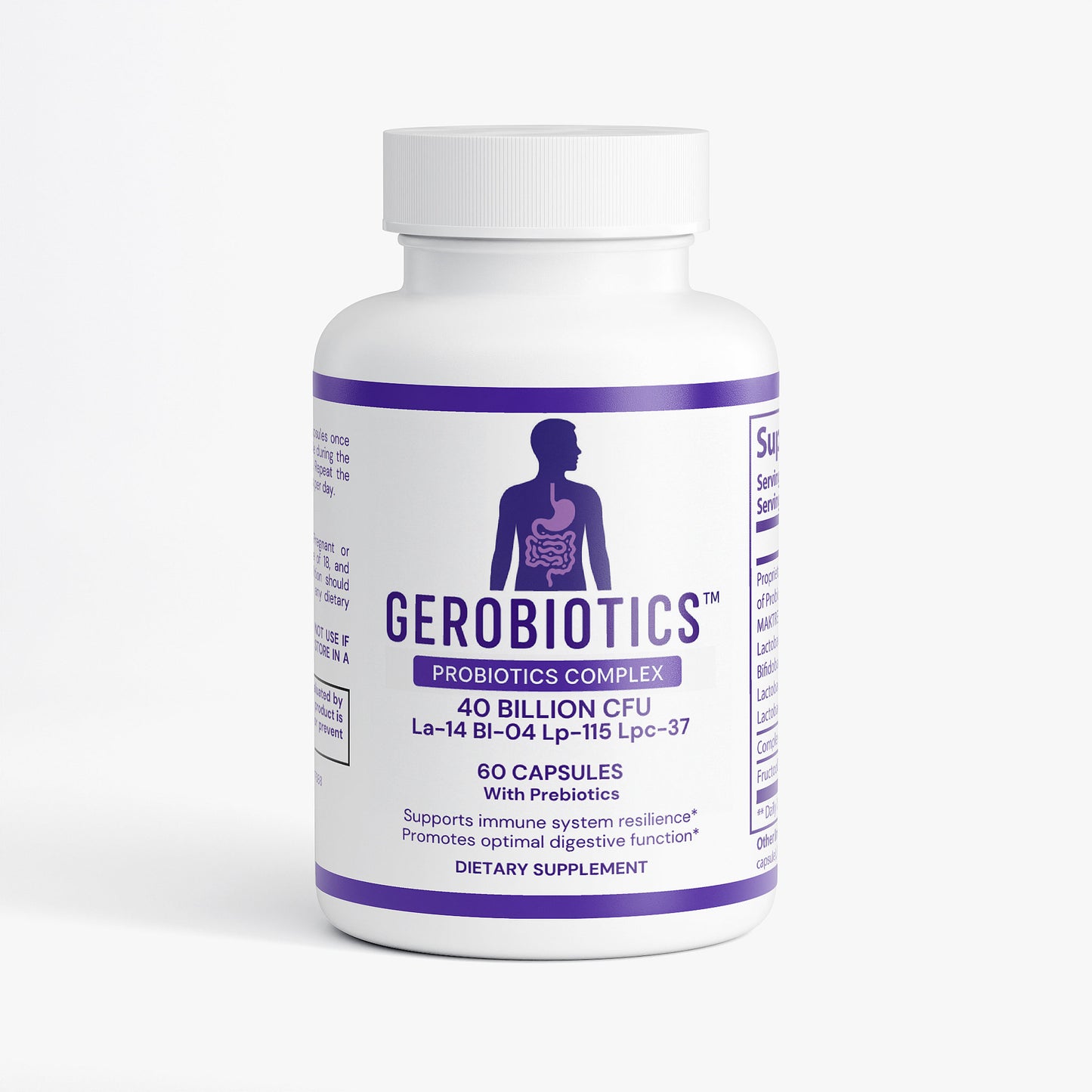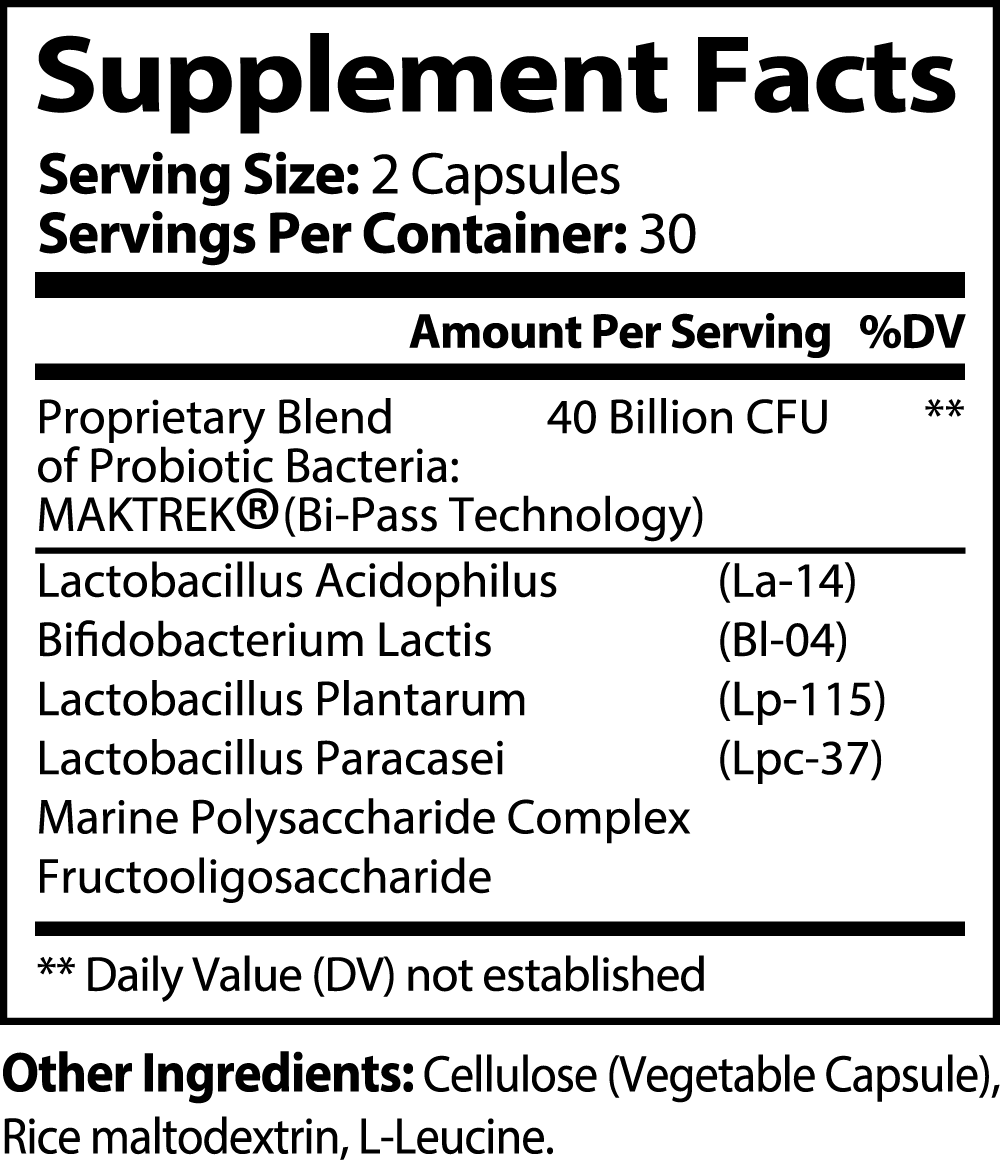Aging is a natural part of life, and many factors, such as lifestyle and nutrition, can play a role in how we experience it. Research suggests that maintaining gut balance may be linked with overall well-being as we age. This article explores the connection between gut health and healthy aging, and shares practical steps to help support a balanced gut microbiome.
The Gut Microbiome and Wellness Across Life Stages
The gut microbiome consists of trillions of microorganisms, such as bacteria, viruses, and fungi, that live in the digestive tract. These microbes interact with the body in many ways, including roles in digestion and ongoing research into connections with immunity and mood. Changes in the gut microbiome may occur as we age, and researchers are studying how these shifts could relate to different aspects of wellness.
How the Gut Microbiome Supports Wellness:
Immune Support: The gut microbiome is being studied for its role in interacting with the immune system. Research suggests it may influence how the body responds to its environment, though findings vary.
Nutrient Support: Beneficial gut bacteria can aid in digestion and may play a role in how nutrients are absorbed, supporting overall wellness.
Gut Balance: Gut bacteria are being researched for their possible influence on immune interactions and overall balance. Studies continue to explore how these connections may relate to wellness.
Insights from Ongoing Research
Microbial Diversity and Wellness in Later Life
Studies mentioned in the National Institute on Aging have shown that greater microbial diversity in the gut is associated with healthier aging. Older adults with a diverse gut microbiota exhibit fewer signs of frailty and have better overall immune function.
Beneficial Bacteria and Gut Balance
Some research suggests that certain bacteria, such as Bifidobacterium and Akkermansia muciniphila, may change in prevalence with age. These microbes are being studied for their potential roles in supporting gut balance and barrier function, though more evidence is needed to understand their significance.
Nutrient Metabolism and Wellness
The gut microbiome plays a role in the metabolism of nutrients and the production of certain vitamins, including B vitamins and vitamin K. Ongoing studies are exploring how these processes may be linked with energy use and overall wellness.
Potential Benefits of Gut Balance as We Age
Gut Balance and Immune Interactions
A balanced gut microbiome is being studied for its potential role in interacting with the immune system. Researchers are exploring how these interactions may relate to overall wellness as we age.
Gut-Brain Connections
Researchers are studying the gut-brain axis, a communication pathway between the gut and the brain. Early findings suggest the microbiome may be connected to aspects of mood and cognition, though more research is needed to understand these links.
Gut Health and Metabolism
The gut microbiome plays a role in metabolic processes, and researchers are exploring how it may influence factors like energy use and nutrient processing. Maintaining balance in the gut may support overall metabolic wellness.
Practical Ways to Support Gut Health Over Time
Dietary Choices:
Eat a Diverse Range of Foods: Including a variety of plant-based foods provides different fibers and nutrients that can help support microbial diversity. A diet with fruits, vegetables, and whole grains may encourage balance in the gut microbiome.
Incorporate Fermented Foods: Foods like yogurt, kefir, sauerkraut, and kimchi contain probiotics, which may play a role in supporting balance in the gut microbiome.
Limit Processed Foods: Processed foods may affect gut balance. Choosing more whole foods can support variety in the diet, which may encourage microbial diversity.
Lifestyle Habits:
Regular Physical Activity: Exercise is associated with positive effects on overall wellness and may also be linked to a more balanced gut microbiome.
Manage Stress: Stress may influence gut balance. Practices like meditation, yoga, and relaxation can support overall well-being.
Get Adequate Sleep: Quality sleep supports overall wellness and may also play a role in gut balance, as rest and recovery are important for many aspects of health.
Moving Forward with Gut Health and Wellness
By focusing on lifestyle factors such as balanced nutrition, regular physical activity, and stress management, you can take steps that may support gut balance and overall wellness. These approaches may encourage balance in the gut microbiome and are associated with overall wellness. Research continues to explore how gut health may relate to areas such as mood, metabolism, and healthy living over time.
Medical Disclaimer: The information provided in this article is for informational purposes only and is not intended as a substitute for advice from your physician or other healthcare professional. Consult with a healthcare professional before starting any diet, exercise, or supplementation program, or if you have or suspect you might have a health problem.





